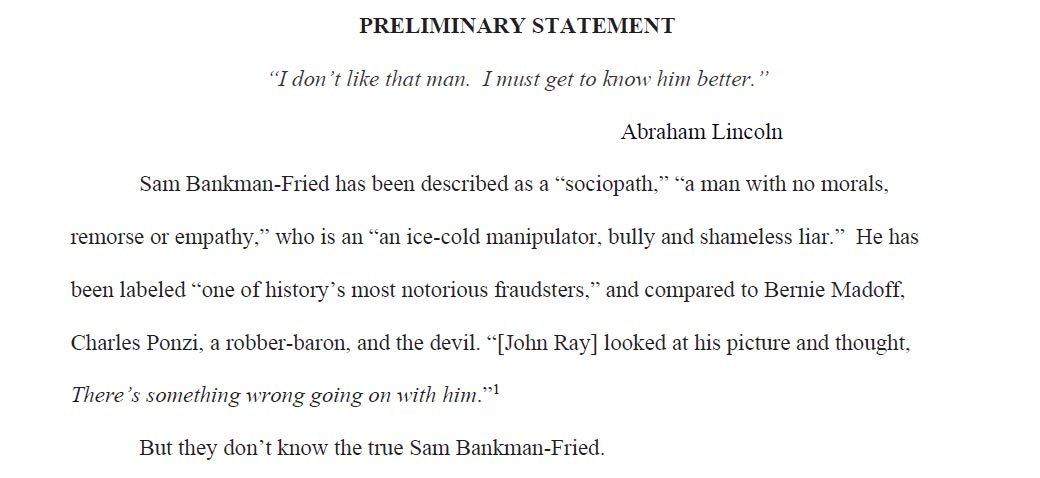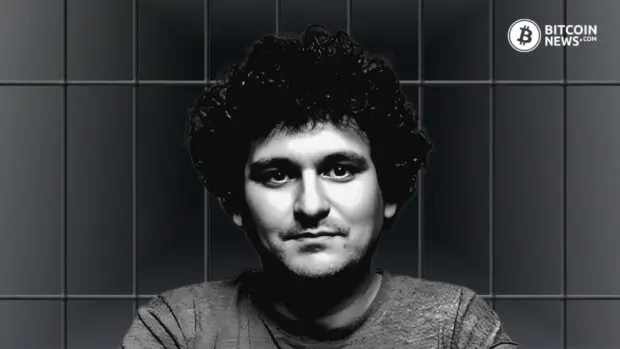The legal saga surrounding Sam Bankman-Fried (SBF), the founder of FTX, has captured widespread attention since his conviction on charges of fraud and conspiracy. As Sam Bankman-Fried sentencing date approaches, his legal team is making a fervent appeal for leniency, arguing that his sentence should not exceed a few years. Bankman-Fried seeks “fair” punishment of 63-78 months, as stated in Tuesday’s court submission. The details of this high-profile case sheds light on arguments put forth by both sides.
The Case of Sam Bankman-Fried: A Summary
Sam Bankman-Fried, a prominent figure in the digital asset world, faces a maximum sentence of 110 years in jail following his conviction on seven charges of fraud and money laundering. The charges stem from the collapse of FTX, Bankman-Fried’s exchange, which left customers unable to access their funds.
The Appeal for Leniency
Bankman-Fried’s legal team, led by renowned attorney Marc Mukasey, is fervently appealing for a lighter sentence. They argue that a sentence ranging from five and a half to six and a half years would be appropriate for a first-time, non-violent offender like Bankman-Fried.
Moreover, they stress that the recommended 100-year sentence by probation officers is “grotesque” and “barbaric.” Mr. Bankman-Fried asserts his innocence and plans to appeal. Recently, he switched his trial attorneys to Mr. Mukasey, known for vigorous courtroom advocacy. Notably, Mr. Mukasey is already representing a different digital-asset figure in another legal matter.
It is stated in the filing, signed by Bankman-Fried’s attorneys Marc Mukasey and Torrey Young:
“Sam is a 31-year-old, first-time, non-violent offender, who was joined in the conduct at issue by at least four other culpable individuals, in a matter where victims are poised to recover—were always poised to recover—a hundred cents on the dollar.”
Character Witnesses and Altruism
In their appeal, Bankman-Fried’s lawyers present a series of glowing character witness statements portraying him as a selfless and altruistic individual committed to philanthropy. They highlight Bankman-Fried’s dedication to making customers whole following the collapse of FTX, emphasizing his lack of prior criminal records and his positive contributions to society.
Bankman-Fried’s sentencing document featured endorsements from his close circle, including his parents, Joe Bankman and Barbara Fried, brother Gabriel Bankman-Fried, SBF’s psychiatrist George Lerner, ex-FTX Head of Communications and assistant Natalie Tien, ex-FTX.US Head of Data Science Daniel Chapsky, an alleged FTX victim, childhood acquaintances, Stanford representatives, and numerous others.
Ms. Tien states:
“I don’t have grudges over him, and I do feel bad for his parents.”
His lawyers added:
“Including Sam’s charitable works and demonstrated commitment to others, a sentence that returns Sam promptly to a productive role in society would be sufficient, but not greater than necessary, to comply with the purposes of sentencing […] The letters of support confirm that the public needs no protection from Sam […] Sam, in short, presents the very opposite of the potential recidivist for whom prison is necessary.”
Comparisons to Notorious Figures
The appeal draws comparisons between Bankman-Fried’s case and those of other high-profile individuals, such as Bernie Madoff, Michael Milken, OneCoin co-founder Karl Sebastian Greenwood, and “the Crypto Queen” Ruja Ignatova. While Madoff received a 150-year sentence for his Ponzi scheme, Bankman-Fried’s lawyers argue that his case bears more resemblance to that of Milken, who served only two years and went on to contribute positively to society.

Challenges and Legal Precedents
Despite the arguments put forth by Bankman-Fried’s legal team, challenges remain. Criminal convictions are rarely overturned on appeal, and the prosecution has until March 15 to submit their sentencing recommendations. Additionally, Bankman-Fried’s diagnosis of autism spectrum disorder adds complexity to the case, with his lawyers emphasizing his vulnerability in a prison environment.
Outlook for Sam Bankman-Fried Sentencing
As the sentencing hearing scheduled for March 28 approaches, all eyes are on the legal proceedings surrounding Sam Bankman-Fried. The outcome of the appeal will not only determine his fate but will also shed light on the complexities of white-collar crime sentencing and the role of character witnesses in such cases.
The sentencing appeal of Sam Bankman-Fried underscores the pursuit of justice in high-profile cases. With arguments for leniency based on character witnesses, altruism, and comparisons to other cases, Bankman-Fried’s legal team is trying to make a compelling case for a lighter sentence. However, the effectiveness of such approaches remains questionable, with legal challenges and precedents shaping the final outcome.










